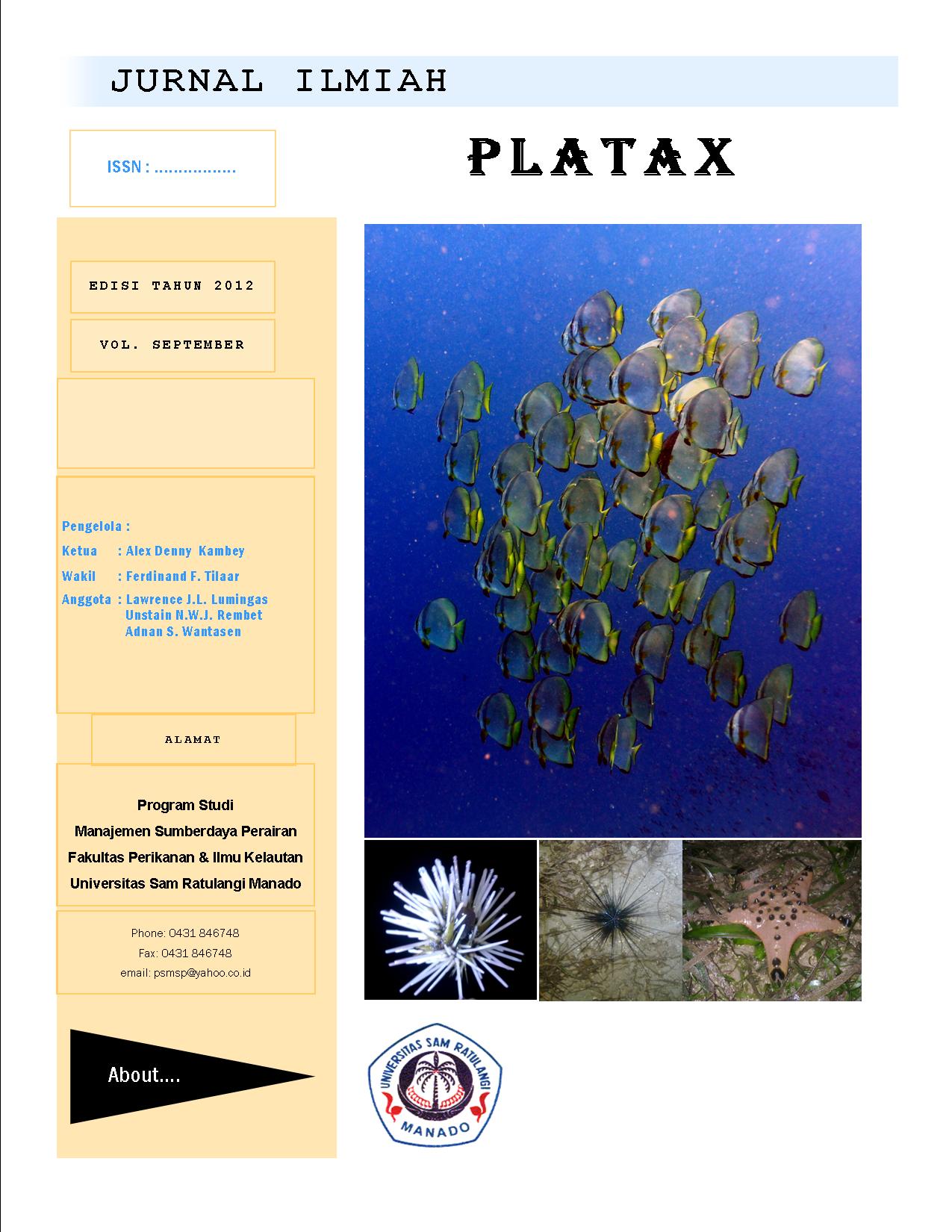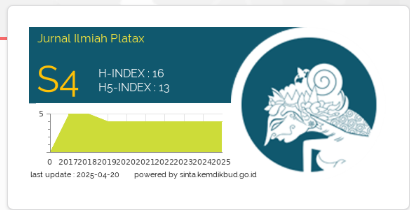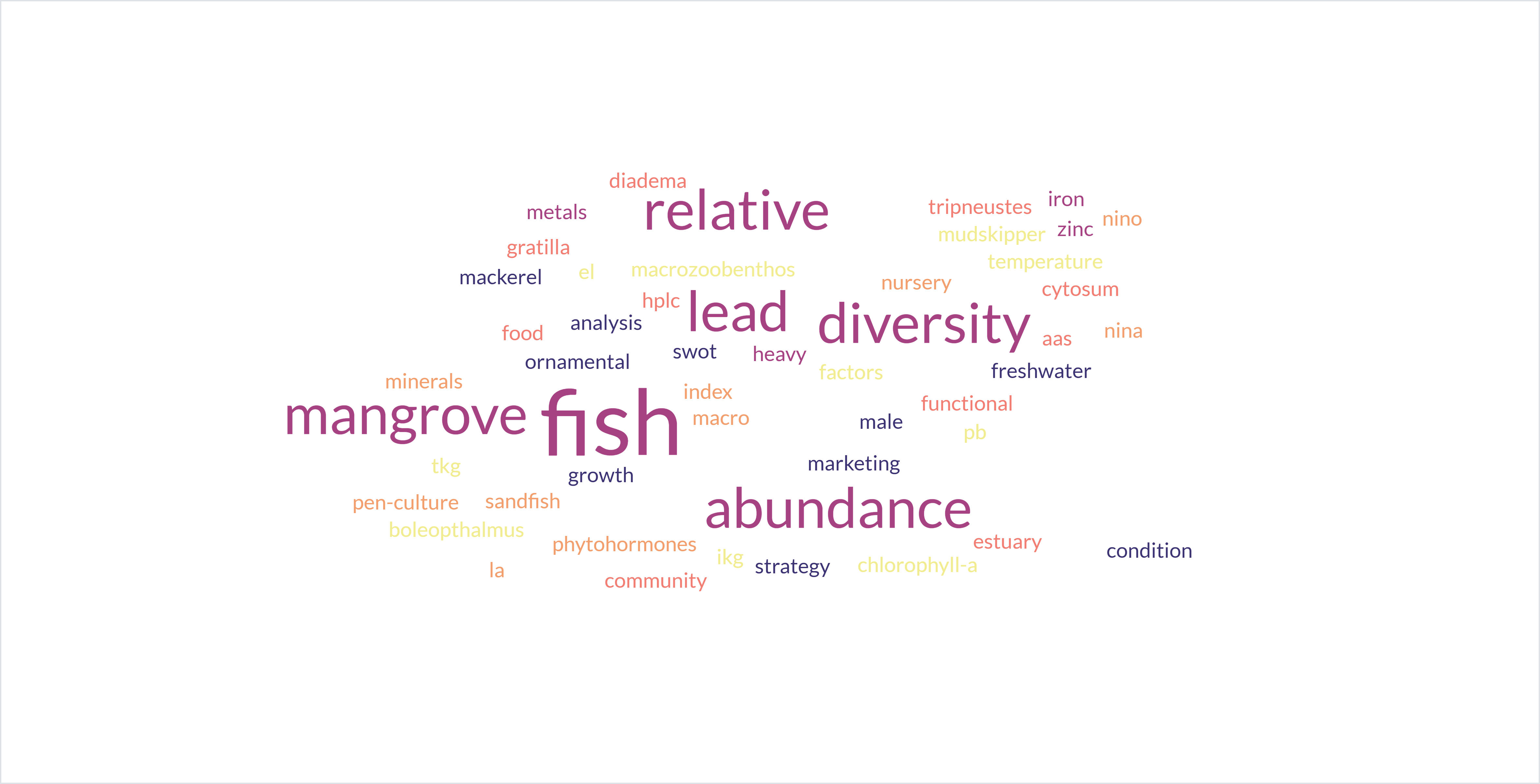The Dangers of Marine Pollution on Consumer Health, Economic Value, and Aesthetic Value in Human Life
DOI:
https://doi.org/10.35800/jip.v12i2.55871Keywords:
Dangers of Marine Pollution, Consumer Health, Economy, AestheticsAbstract
Water pollution happening in the sea results in changes to the composition or structure of the water affected by human activities and natural processes. This leads to water having qualities and functions that do not align with their intended uses and can disrupt human life, marine biota, and marine ecosystems. Pollution in the marine ecosystem undoubtedly affects marine products in various aspects of life. This article used a literature review method to gather the necessary data for explaining the discussed topic. This article aims to explain the harmful impacts of marine pollution on consumer health, economic value, and the aesthetic value of the marine ecosystem. Based on the results of literature studies conducted through secondary data analysis from published journals in the last 10 years (2015-2024), it was found that marine pollution contaminated with bacteria or pathogens due to chemical substances can disrupt human health, causing symptoms such as vomiting, diarrhea, stomach pain, collapse, and even death. The economic aspect also experienced its impacts, such as the decrease in fishermen's catch and the disruption of the beauty of the marine ecosystem due to changes in water composition, leading to the sea appearing cloudy and odorous, and being filled with waste.
Keywords: Dangers of Marine Pollution, Consumer Health, Economy, Aesthetics
References
Afrilla, O. dan S. I. P. (2021). Uji Kandungan Pencemaran Timbal Pada Hasil Laut Di Kabupaten Banyuwangi. Ikesma: Jurnal Ilmu Kesehatan Masyarakat, 17(2).
Aini, H. Q., et al. (2021). Review Tentang Sumber dan Dampak Pencemaran Laut. ESEC Proceedings, 4(1).
Aqilla, A. R., Razak, A., Barlian, E., Syah, N., & Diliarosta, S. (2023). Pengaruh Sampah Plastik Dalam Pencemaran Air. Gudang Jurnal Multidisiplin Ilmu, 1(6. h), 275–280.
Budhiawan, A., Susanti, A., & Hazizah, S. (2022). Analisis Dampak Pencemaran Lingkungan Terhadap Faktor Sosial dan Ekonomi pada Wilayah Pesisir di Desa Bagan Kuala Kecamatan Tanjung Beringin Kabupaten Serdang Bedaga. Jurnal Pendidikan Tambusai, 6(1). h:240-249.
Darza, S. E. (2020). Dampak Pencemaran Bahan Kimia Dari Perusahaan Kapal Indonesia Terhadap Ekosistem Laut. Jurnal Ilmiah MEA (Manajemen, Ekonomi, dan Akuntansi (Vol. 4, Issue 3).
Dewi, M. K. (2021). Pencemaran Laut Akibat Tumpahan Batu Bara Di Laut Meulaboh Ditinjau Dari Sudut Hukum Lingkungan. JHP, 17(2).
Dinda Arba Fuzia, F. S. (2021). Pengadaan Instalasi Pengolahan Air Limbah sebagai Syarat Pembuangan Limbah Cair dalam Upaya Pencegahan Pencemaran Air berdasarkan Peraturan Bupati Cirebon Nomor 1 Tahun 2014 Tentang Ketentuan Perizinan Pembuangan Limbah Cair ke Sumber Air di Kabupaten Cir.
Farhan, A., Chintya, C., & Annisa, N. (2023). Analisis Faktor Pencemaran Air dan Dampak Pola Konsumsi Masyarakat di Indonesia. Jurnal Hukum Dan HAM Wara Sains, 02(12).
Firmansyah, Y. W., Fuadi, M. F., Ramadhansyah, M. F., & Sugiester, F. (2021). Keberadaan Plastik di Lingkungan, Bahaya terhadap Kesehatan Manusia, dan Upaya Mitigasi: Studi Literatur. Serambi Engineering, 6(4), 2279 – 2285.
Mariah, Y., et al. (2023). Penyuluhan Dampak Limbah Busa Sabun Dari Masyarakat Pantai Marunda Pada Ikan Hasil Tangkapan Nelayan Di Kampung Nelayan Marunda Cilincing. Community Development Journal, 4(6), 11697–11701.
Muhammad, S., & Sarto. (2018). Analisis risiko kesehatan akibat pajanan timbal (Pb) dalam biota laut pada masyarakat sekitar Teluk Kendari. Berita Kedokteran Masyarakat (BKM Journal of Community Medicine and Public Health, 34(mor 10), 385–393.
Mustaruddin, L. E., A, S., & SS, K. (2020). Dampak pencemaran fishing ground terhadap produksi dan mutu ikan yang tertangkap di Teluk Jakarta. JPSL, 10(2), 284–293.
Pratiwi, D. Y. (2020). Dampak Pencemaran Logam Berat Terhadap Sumber Daya Perikanan Dan Kesehatan Manusia. Jurnal Akuatek, 1(1), 59–65.
Putri, U. R. P., & Rismaya, R. (2023). Penentuan Kadar Merkuri (hg) Pada Kerang Hijau Di pasar Serpong Menggunakan mercury Analyzer. Food Scientia Journal of Food Science and Technology, 3(1).
Raharjo, P., Raharjo, M., & Setiani, O. (2018). Analisis Risiko Kesehatan dan Kadar Timbal Dalam Darah: (Studi Pada Masyarakat yang Mengkonsumsi Tiram Bakau (Crassostrea gigas) di Sungai Tapak Kecamatan Tugu Kota Semarang. Jurnal Kesehatan Lingkungan Indonesia, 17(1), 15.
Sugiana, P., Putri, P. Y. A., & Maestro. (2022). Pencemaran Merkuri di Pesisir dan Laut: Dampak, Strategi Pemantauan, Mitigasi serta Arah Penelitian di Indonesia. ULIL ALBAB : Jurnal Ilmiah Multidisiplin, 2(9).
Wan, S., Yang, X., Chen, X., Qu, Z., An, C., Zhan, B., Lee, K., & Bi, H. (2022). Emerging marine pollution from container ship accidents: risk characteristics, response strategies, and regulation advancements. Journal of Cleaner Production, 376.
Wau, V. A. (2021). Pentingnya Pembangunan Kesadaran Masyarakat Akan Dampak Pembuangan Sampah Plastik Ke Laut. JUSTITIA : Jurnal Ilmu Hukum Dan Humaniora, 8(6).
Yatzin, A., & Paskah, I. (2023). Bahaya Sampah Plastik Di Laut Bagi Makhluk Hidup. SENSISTEK, 6(2).
Downloads
Published
How to Cite
License
Copyright (c) 2024 Haryadi Wijaya, Henny Adeleida Dien, Roike Iwan Montolalu, Daisy Monica Makapedua

This work is licensed under a Creative Commons Attribution-NonCommercial 4.0 International License.
COPYRIGHT
Authors who publish with this journal agree to the following terms:
Authors hold their copyright and grant this journal the privilege of first publication, with the work simultaneously licensed under a Creative Commons Attribution License that permits others to impart the work with an acknowledgment of the work's origin and initial publication by this journal.
Authors can enter into separate or additional contractual arrangements for the non-exclusive distribution of the journal's published version of the work (for example, post it to an institutional repository or publish it in a book), with an acknowledgment of its underlying publication in this journal.
Authors are permitted and encouraged to post their work online (for example, in institutional repositories or on their website) as it can lead to productive exchanges, as well as earlier and greater citation of the published work (See The Effect of Open Access).






































